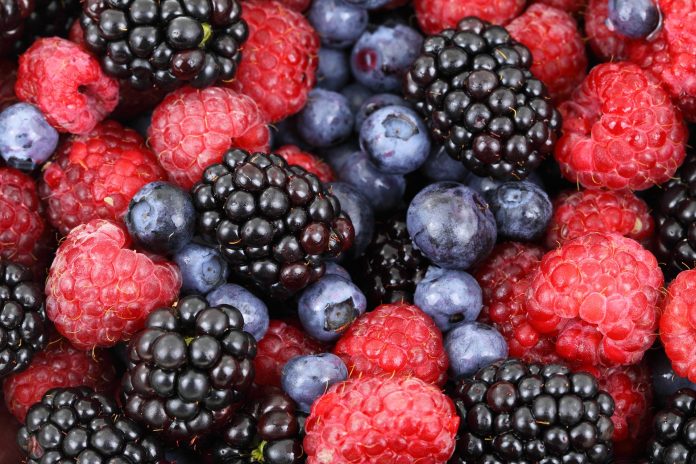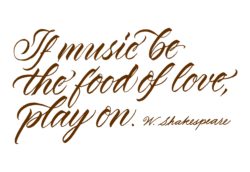I am a doctor and everything I know about food that is worth knowing, I learnt somewhere other than medical school. We learn so much in medical school, but when it comes to food, which we ingest every day, which serves as the building blocks of our body, and which is therefore our daily medicine, we seem happy to skip over that. In fact, not only do we not learn about food as medicine, but we learn to use it in a way that literally makes us sick, and causes a large slice of our illness and disease, as well as taking up a large amount of our time, money and energy along the way.
Have you ever wondered why this is the case?
“Let food by thy medicine and medicine be thy food”
In ancient times, physicians understood the importance of food, and even used it in medicinal ways. The quote: “Let food be thy medicine and medicine be thy food” is widely attributed to Hippocrates, who is considered by many to be the father of modern medicine.
Yet over time, as modern medicine has become more adept at fixing what ails us, we have become less and less inclined to look at what may be making us sick in the first place… the way we live, including what we eat and drink.
Food as medicine is not just ancient history… it is increasingly being shown that illness and disease are largely lifestyle related, and yet still we are reluctant to educate our patients in how to live, including how and what to eat, as part of our duty of medical care, perhaps in part because we know little about it, as we have been poorly educated ourselves, and perhaps because we are still unwilling to look at food when it comes to our own eating habits.
We learn very little about food and nutrition during our medical training, and we rely on the (often outdated) advice of dietitians, to whom we hand over the reins and the responsibility when it comes to advising our patients about what and how to eat and drink.
Why have we allowed this?
Why do we think that we don’t need to know about food as medicine and that it is someone else’s job?
We have now reached the ridiculous state of affairs where doctors are being professionally censured when they have dared to offer dietary advice, as in the case of Dr Gary Fettke, who has been forbidden from talking to his patients about food, a decision which was recently and rightly overturned.
Doctors love food
Many of us consider ourselves as connoisseurs of food and eating it is often the highlight of our days. Yet we are also surprisingly ignorant about the nutritional values of food and the caloric consequences, and are willing to eat ‘whatever’ to fuel ourselves to keep going and do what we think we need to do… we eat hospital food, fast food, junk food, frozen meals from the supermarket instead of fresh wholesome food… why the contradiction?
We do what we do for a reason… so if we are doing something that apparently makes no sense, it is always good to look a little deeper until we can see the reason underlying it.
What do we use food for?
For myself, I used food as a reward, as a treat…I was willing to do whatever it took during the day, and work hard for long hours, as long as I could reward myself with food at lunchtime, at the end of the day, and on my days ‘off’. My personal go-to was sugar, in its many and varied forms, but we each have our own thing, be it savoury, sweet, or spicy… hot chips, potato crisps, pasta, chocolate, cake, or whatever.
I also used food to numb myself, if I was feeling uncomfortable and didn’t want to feel like that… carbs work best for that, which would be great if they did not make you fat and if those pesky emotions did not keep bubbling up anyway, requiring more and more carbs to push them down!
If I was feeling a little sad, dairy did the trick, either sweet, as in ice-cream or chocolate, or savoury, as in anything with cheese, would do… but my lungs and sinuses started clogging up, and my nose would run during the day and I would snore at night.
And I would override my perpetual exhaustion with sugar and coffee. The problem with that, is that the short upper would be followed by a downer, requiring more uppers to bring me back up, and by the end of the day I was so tired and wired that I would need alcohol to pick me up, and then some more to bring me back down enough to get a fitful, because I was exhausted, sleep.
Waking still exhausted the next morning and having to get up and go to work anyway required more coffee and sugar and carbs…and so the cycle continued and escalated…
So how can we turn this cycle around, and eat in a way that sustains and truly nourishes us?
For me, that change came with the understanding of the true purpose of food.
What purpose does food serve?
We use food for stimulation, distraction, numbing, reward and treats, but the true purpose of food is to sustain and nourish us, to provide a body that is light and vital and can support us through the day, without eating in a way that interferes with that light and clear and energised feeling.
Rather than flitting from one diet to the next and trying to find our way through the minefield of contradictory data and advice about food, the simplest thing is to learn to listen to our bodies and let them guide us through life. Not our tastebuds, which can be easily distracted and stimulated and would have us eating all sorts of things we should not, but our whole bodies!
My husband and I call it the warm and yummy diet. We eat things that make us feel warm and yummy inside, and leave us feeling clear and light and vital, and we let go of the things that don’t. There is a simplicity and a lovely honesty to eating and living in this way.
By following the warm and yummy diet – with no perfection, for our tastebuds and our eyes still lead us astray at times and we can still just be pigheaded and decide we want something anyway, even though we know how it is going to affect us – I no longer drink alcohol or caffeine, I eat very little carbs (an apple or a handful of nuts rather than loads of bread, pasta, rice, cakes, biscuits and potatoes as I used to), and my diet consists of animal protein (I used to be vegetarian), green leafy vegetables, and salads, some nuts and seeds, loads of herbs and spices and ….that’s about it.
I know, it sounds daunting, but this has been a gradual change over many years, and it has happened, not because I thought I should or because I followed someone else’s advice, but because I became willing to listen to my overweight, dull, listless and exhausted body and to start to treat it with tender loving care.
The most astonishing thing for me was when I finally stopped eating gluten, most reluctantly, because it was making me fall asleep at work after lunch and in the car, and I realised how much it was numbing my body and preventing me from feeling anything much at all.
From then on, I was on the way home… my body became much more sensitive and I was more able to feel how each food and drink was affecting me and make changes accordingly.
Our food now is actually very delicious and satisfying. We entertain regularly, and our friends who eat ‘normal’ food love coming to eat with us and don’t feel like they are missing out on anything when they share the food we eat.
We are constantly refining what we eat according to where our bodies are at… if a food makes us feel congested, or bloated, or tired, or whatever, we look at whether we should still be eating it, and make changes accordingly… eventually, depending on how attached we are to it!
And if we are attached, we ask ourselves why… what does that particular food do for us, and why are we so unwilling to let it go, when our bodies are clearly telling us that it no longer serves us
As Socrates said:
“Thou shouldst eat to live; not live to eat.”
Are we willing to reframe how we see food, instead of turning a blind eye to it so we can continue to indulge ourselves and use food to not deal with how we are feeling? If we can make that commitment, we will be truly rewarded, not the temporary reward of a mouthful of something that is transient and followed by the consequences that our body has to deal with, but the true reward of feeling delicious in our bodies, every single day.
We will feel light, energised, vital, and more able to do what we want and need to do. And we will serve as true role models, for our family, friends, staff, colleagues and patients, of how to eat and live in a loving way that sustains us.
If we let food be our medicine, and learn to eat to live, listening to the wisdom of our bodies, and letting them guide us through life, we will be honouring the true purpose of food, which is to fuel our bodies to be fit for life, and we can serve as a true and loving inspiration for others. Now that is true medicine.










I feel living in a modern world has allowed us to take food for granted. We have lost the knowledge that what the earth produces is a miracle.
I was a farmer, and was amazed how someone would pay $15 dollars for a flower, but would not spend $3 dollars on a tomato. I had to start growing flowers to subsidize my vegetable growing!
Understanding that food is medicine, makes so much sense. It may support us to appreciate, that what we eat is important.
Great post Anne. It has always amazed me how little training doctors have in nutrition even these days. Yet they will give often outdated advice – eg the food pyramid with its loading of carbs. And prescribe a pill for every ill rather than advocating lifestyle changes, There are a few doctors in the UK who are now turning the tables slowly. BIg pharma prefer to give you tablets – as there is no money for them in fresh unprocessed foods. And it is Big pharma who sustain many doctors’ education post graduation.
I loved this article Anne…listening to our body’s wisdom is so supportive, rather than following what someone else may be doing or telling us to do. Everyone experiences life so differently and what our bodies communicate and guide us to choose will also be very individual and different. As a Mind Body Eating Coach, I love the transformation that takes place with clients when they can start to slow down and be present with food and feel how their body is communicating and providing feedback. When we stop to feel and take time to be present with what we are eating, amazing changes can take place. This gives such a solid foundation where we are eating and enjoying food that is truly nourishing and our focus is longer about weight or body image…but more about how we can love and nurture ourself and connect into what our body needs and what is supportive to maintain that amazing connection and healing within our body.
Hmmm, I do eat too many gluten-free carbs…. for comfort!
My previous GP confessed to me that she hadn’t received any nutrition training at medical school, despite admitting to me that most of her patients’ ailments were food-related.
My husband is an obese diabetic but his food choices are never discussed or “challenged” by his medical practitioners, so he feels that he has the “green light” to eat as he chooses.
How many more patients continue to abuse their bodies, because by default their GPs are giving them the “okay” to continue indulging in bad food choices, or excessive amounts?
Surely, for the NHS and health services around the world, this lack of training is self-defeating and ultimately bankrupting?
Hi Maggie,
we as doctors find it hard to advise our patients on what and how to eat, as we are not trained in how to offer supportive, non-judgemental advice on diet and exercise, and we are often not living in a healthy loving way ourselves…
for true change to occur, it needs to start with us, and we can then advise our patients from the living wisdom of our bodies…
Wonderful post. I’m not sure that doctors lack knowledge when it comes to food. On one hand, we have ourselves developed unhealthy relationships with food due to many stressful years of training. On the other, we know that our patients aren’t going to take our advice regarding food. You don’t got to a physician for food advice, you got to a western trained physician for a medical or surgical intervention.
It seems that to change this we would have to stop having the AMA claim to represent us and we’d have to take a stronger stance on prescribing multiple BP meds and statins when patients haven’t yet optimized their diet. But it’s not all on the patient; we would need longer office visits with more visual help to help patients make better food choices.
Like yourself, helping a patient recognize that certain foods are used for self-medication takes time – hardly achievable in a 7-minute visit at Kaiser Permanente.